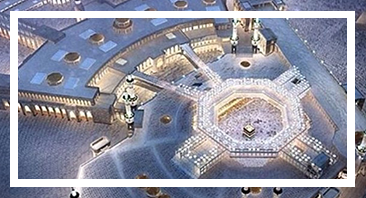
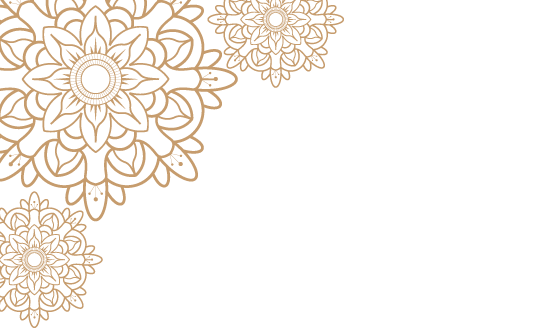



Epilogue
Epilogue
History has recorded fine details of Muhammad’s life as well as his sublime and humane dealing with people.
MUHAMMAD, THE MAN
Michael Hart stated in his book “The 100; A Ranking of the Most Influential Persons in History”:
“Of humble origins, Muhammad founded and promulgated one of the world’s great religions and became an immensely effective political leader. Today, thirteen centuries after his death, his influence is still powerful and pervasive. The majority of persons in this book, had the advantage of being born and raised in centers of civilization, highly cultured and politically pivotal nations”.
Muhammad however was born in the year 570 CE, in the city of Mecca, in southern Arabia, at that time a backward area of the world, far from the centers of trade, art and learning.”
“It is this unparalleled combination of secular and religious influence which I feel entitles Muhammad to be considered the most influential single figure in human history.” Michael Hart
“It is probable that the relative influence of Muhammad on Islam has been larger than the combined influence of Jesus Christ and St. Paul on Christianity. On the purely religious level, then it seems likely that Muhammad has been as influential in human history as Jesus.”
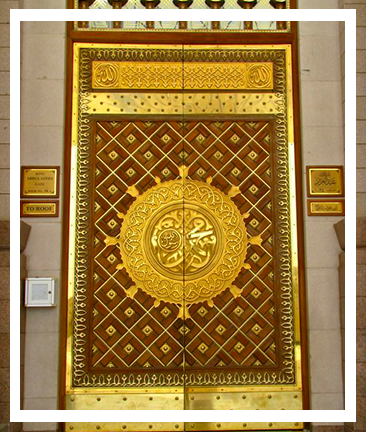
THE STORY OF THE KA'BAH KEY; A LASTING PROMISE
In the year 630 CE, Muhammad gained victory over the
MUHAMMAD, THE LEADER
Speaking objectively about Muhammad, the French writer and politician Alphonse de Lamartine wrote in his book Histoire de la Turquie:“Never has a man proposed for himself, voluntarily or involuntarily, a goal more sublime, since this goal was beyond measure: undermine the superstitions placed between the creature and the Creator, give back God to man and man to God, reinstate the rational and saintly idea of divinity in the midst of this prevailing chaos of material and disfigured gods of idolatry. Never has a man accomplished in such a short time such an immense and long lasting revolution in the world”
“If the grandeur of the aim, the smallness of the means, the immensity of the result are the three measures of a man’s genius, who would dare humanly compare a great man of modern history with Muhammad?” Lamartine also indicated that Muhammad didn’t move weapons and empires to create a material power but he moved ideas, beliefs, and souls. He founded upon a Book, of which each letter has become a law, a spiritual nationality embracing people of all languages and races in the world.
Lamartine also indicated that Muhammad didn’t move weapons and empires to create a material power but he moved ideas, beliefs, and souls. He founded upon a Book, of which each letter has become a law, a spiritual nationality embracing people of all languages and races in the world.
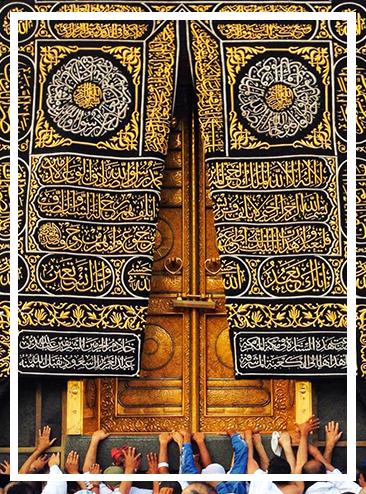
MUHAMMAD, THE MESSENGER OF GOD
THE STORY OF SURAQAH; A PROMISE FULFILLED 20 YEARS LATER
When Muhammad migrated to Madinah with his close companion Abu Bakr (622 CE), the Meccan leaders announced a large reward of 100 camels for anyone who could bring Muhammad dead or alive. 
Unfortunately Muhammad and his companion were tracked down by one of the Arab knights named Suraqah bin Malik who was tempted by the big reward. On the way, his horse stumbled and he fell on the ground a few times. He considered these unusual incidents as an indirect message that Muhammad probably had been supported by divine power.
When Suraqah approached Muhammad, Muhammad said to him: “Do return to your people and I promise you that one day (under the umbrella of the Islamic state) you would wear the bangles (bracelets) of Chosroes, the Persian ruler."
Suraqah asked in wonderment if Muhammad meant the bangles of Khusrow bin Hormuz, the emperor of Iran. Muhammad replied "yes" with full confidence. He had a strong faith that the religion of Islam would reach Persia and would be known all over the world.
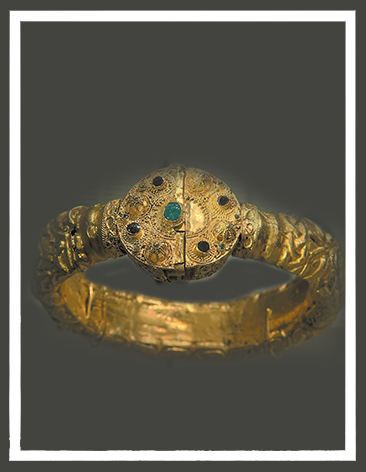
ALSO
Suraqah returned back to Makkah but he didn’t embrace Islam until Muhammad took over Makkah peacefully 8 years later (year 630 CE).
Muhammad passed away in the year 632 CE and his promise to Suraqah was believed by his companions as genuine and would happen one day.
Time passed until Omar Bin Al-Khattab became the second caliph (ruler of the Muslim state). At his time, Islam reached Persia in the year 642 CE and all the treasures of Khusrow, the emperor of Persia fell in the hands of Omar.
Omar remembered the story of Suraqah and asked his companions to bring him in. (20 years passed since this story took place and Suraqah had become an old man).
After prayer congregation, Omar said to Suraqah: "Here are the bangles of Khusrow, the emperor of Persia, this is what Muhammad had promised you. Put them on and let all Muslims see them so everyone becomes certain that Muhammad’s promise is fulfilled."
Suraqah cried and every one wept. Muhammad’s promise became a reality 10 years after he passed away.
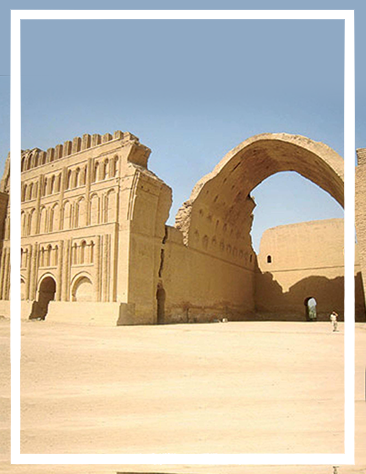
AND
Meccan chiefs and entered Makkah peacefully. He returned home not to live there for the rest of his life but to clear paganism and liberate or restore the original purpose of Ka’bah (the cubical building that was established by Prophet Abraham to worship one God). He removed all idols from around the Ka’ bah and asked his companion Bilal to climb on top of the Ka’bah and call:
God is Greatest, God is Greatest, I witness that there is no deity but Allah and I witness that Muhammad is His messenger.
Muhammad wanted the key for the Ka’bah door, so he called Othman Bin Talha (of BaniShayba family) who was the keeper of the Ka’bah key. It is important to know that there was a treaty before Islam in which the honour of being a custodian or a warden of the Ka’bah was given to the family of Bani Shayba. This honour and responsibility was passed from the grandfathers to the sons in the same family until it reached Othman Bin Talha.
Othman Bin Talha was a new muslim at that time. Many years ago he refused to let Muhammad even enter the Ka’bah and pray inside it like other people since he did not believe him. When Muhammad returned to Makkah, Othman had no choice but to give him the key and lose the honour of keeping it.
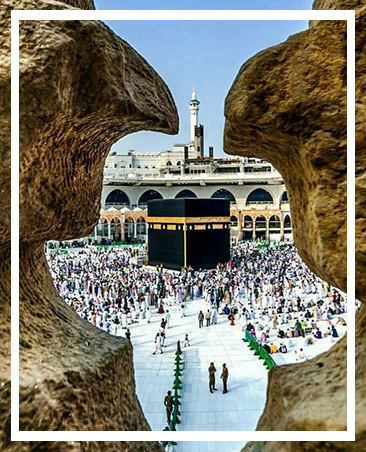
ALSO
At that moment many people asked Muhammad to grant them the honour of keeping the key of the Ka’bah and thousands of Muslims were looking at Muhammad to see who would be the new custodian of the Ka’bah key.
Breaking a moment of silence, Muhammad opened the door of the Ka’bah and cleared it of idols. He looked at Othman Bin Talha and said to him (respecting previous agreements):
“Today is a day of loyalty and piety! Take the key back. As from now and until the Day of Judgment, no one can take it from you (family of Bani Shayba) unless he was an aggressor.”
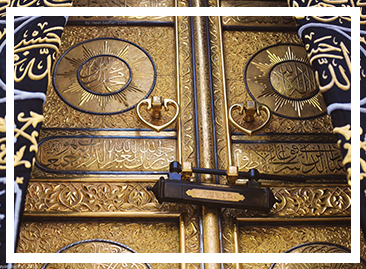
A MOMENT OF FIDELITY THAT HAS BEEN LASTING UNTIL NOW:
You may be surprised to know that the key is still being held by the offspring of Bani Shayba family until NOW!
More than 1400 years passed and the key is still given from one generation of the Bani Shayba family to the next generation. Until now, no one dares to take it from them otherwise he or she would be considered as an “aggressor” according to Muhammad’s description.
Nowadays, when the Saudi authorities perform their annual cleaning and preparation of the Ka’bah for the annual pilgrimage, they contact a person from the Bani Shaybafamily (who is currently a Saudi family) to open the Ka’bah door for them.
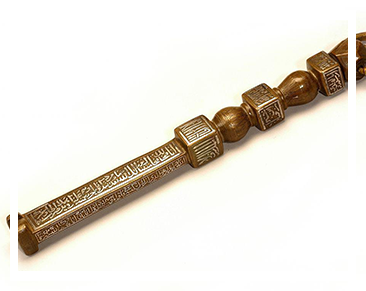
MUHAMMAD, A PROPHET FOR OUR TIME
Karen Armstrong, the author of, “Muhammad: A Prophet for Our Time”, indicated that we must approach the life of Prophet Muhammad in a balanced way in order to appreciate his considerable achievements. He had important lessons, not only for Muslims, but also for the Western people.
She also indicated that If we are to avoid catastrophe, the Muslim and Western worlds must learn not merely to tolerate but to appreciate one another. A good starting point is the figure of Muhammad.
